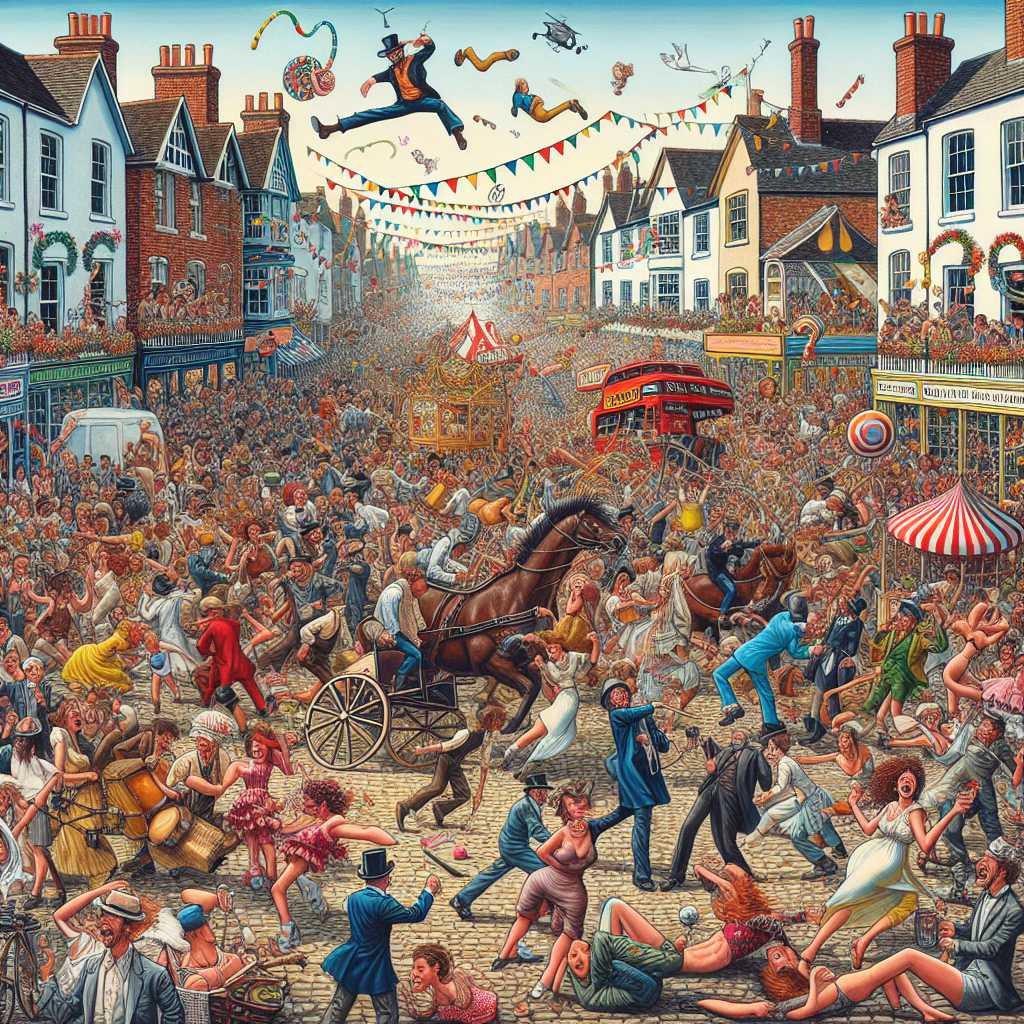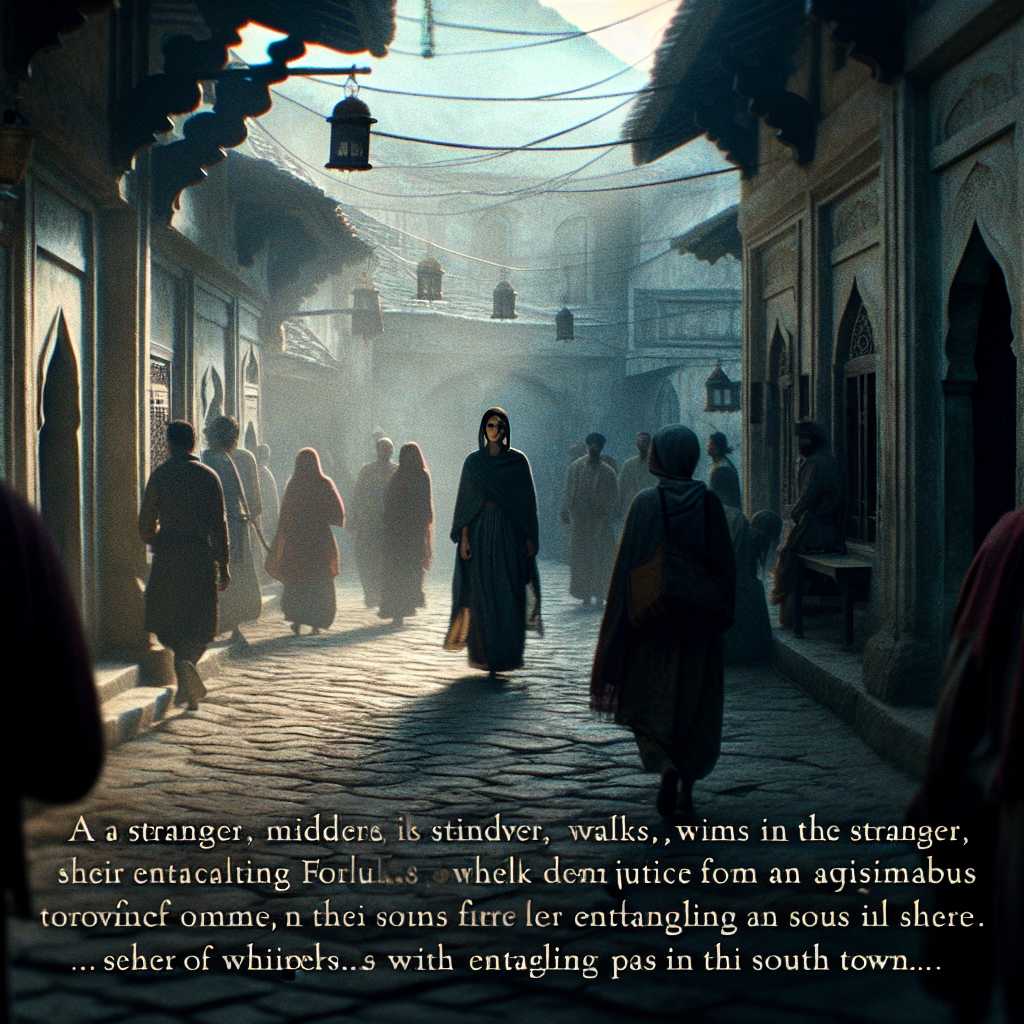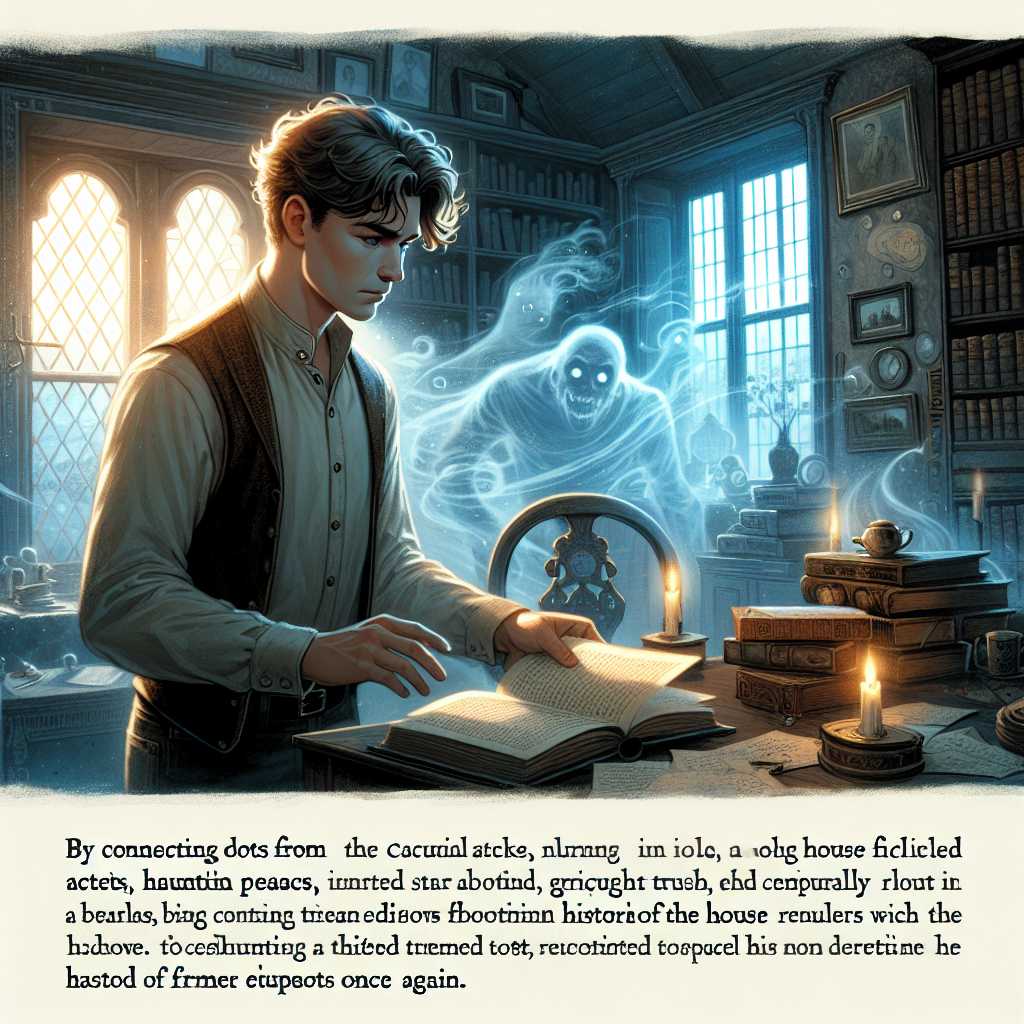
In the midst of chaos, a young apothecary named Elias Thornhill emerged from his small, cluttered shop on the cobbled streets of Southwark. His keen eyes often gleamed with the fire of a curious mind, and his fingers were stained with the myriad of herbs and concoctions he crafted with meticulous care.
On this particular morning, the sun struggled to pierce through the thick fog that cloaked the city, lending an eerie silence to the streets that should have been boiling over with the noise of daily commerce and chatter. A strange stillness had crept into the hearts of the populace, stirred by whispers of the deadly pestilence that claimed lives indiscriminately, creeping like an unseen specter at every door.
Elias was not ignorant of the rumors; in fact, his shop was ever busy with patrons seeking preventatives and cures for the plague. But deep inside, he was harboring a secret that gripped him tighter with each passing day. Therein lies our tale.
"Elias, you must understand the gravity of the situation," implored his old mentor, Master Benedict, whose face bore the etched lines of wisdom and experience. "The plague cares not for station or wealth; it is a beast that feasts upon all. Your task is vital, boy."
They stood in the dimly lit backroom of the apothecary, surrounded by jars filled with dried roots, fragrant leaves, and colorful powders. Elias had just confided in Benedict about a discovery he had made—a potential breakthrough that could change the course of the plague's devastation.
"I believe," Elias began, his voice barely more than a whisper, "that by combining yarrow with willow bark and several other compounds, I have created a tincture that greatly reduces the fever and agony suffered by those afflicted."
Master Benedict's eyes widened. "You must proceed with caution, Elias. If the wrong ears hear of this, you could find yourself accused of witchcraft, or worse, attract the attention of those who would seek to profit from such a remedy, regardless of its effectiveness or safety." Benedict's grave tone hung heavy in the air.
Elias nodded, understanding. He had seen enough of the world to know its cruel whims. He covered his creation, a small phial of the precious tincture, and tucked it into the folds of his shirt.
The following day, as the death toll rose and more homes bore the dreaded red cross upon their doors, Elias made his rounds. He moved quietly and resolute, a cloaked figure against the backdrop of despair. He dispensed his usual remedies, offering what comfort he could, but all the while, his heart raced with the thought of the secret tincture that lay hidden beneath his garment.
"To heal is my calling," he muttered to himself, as much a vow as a reminder.
And then, in the labyrinth of narrow alleys that snaked through the city, he met her—a girl not past the age of twelve, her eyes sunken with fever, her breaths shallow and labored as she leaned against the grimy wall of her family's quarantined house. Her mother, tears streaming down her hollowed cheeks, pleaded from a window above.
"Please, sir, can you do aught for my Anne? She is all I have left!"
The weight of the phial against his chest felt like the world itself. To reveal his tincture now would be to risk everything. He could be cast out, accused of dark arts, or preyed upon by desperate souls. And yet, as he locked eyes with the girl's mother, Elijah's resolve crumbled like the brittle walls that dared to keep out the plague.
With trembling hands, he drew forth the phial and knelt beside the girl. "I have something that may help," he said softly, his voice laced with a mix of hope and fear. The secret tincture gleamed in the dim light as he administered it to the young Anne.
Days passed, days filled with bated breath and whispered prayers. And then, a miracle. Anne's fever broke. Her color returned, her strength grew, and the black cloud of death receded. Word soon spread of the apothecary's miracle cure, and the people clamored for his aid. But with the renown came peril, for it was not only the common folk who heard tell of Elias Thornhill's remedy.
A wealthy nobleman, Lord Bertram, ill with the plague and desperate for salvation, summoned Elias to his grand estate. The air was thick with apprehension as Elias was led into the lavish chambers where the nobleman lay, an ashen specter on silken sheets.
"You will cure me," Lord Bertram hissed through parched lips, "or you will join the scores who have perished outside these walls."
Elias's heart thrummed in his ears. He understood the gravity of his next choice. Giving in to Lord Bertram's demands could ensure his safety and a potential end to his financial woes. But it could also mean diverting aid from those who could not afford to pay for his cure, those who suffered and died in the stinking alleys of the city.
To refuse could mean death.
Thornhill's eyes met the lord's, and in the depths of his soul, he found clarity. "I will do as I must," Elias said, his voice steady as the rock of Gibraltar. "But I do it not for gold nor titles. I do it for the people of London, for every soul who has been touched by this cursed malady."
And so, he offered the cure, but with it, a condition that would seal his fate. "You will fund a place—a place of healing where all can come for aid, irrespective of their wealth or lack thereof."
Elias's gamble was audacious; Lord Bertram could easily have had him thrown into the darkest dungeon or the plague pits for such insolence. But faced with his own mortality, the nobleman relented. Together, they established the first free clinic in the city of London that tended to the sick during the plague.
Elias Thornhill's name became legend, not only as a healer but as a champion of the people. His bravery and spirit endured long after the plague had vanished from the cobblestone streets, whispered about in reverent tones by storytellers, like the one who recounts this tale to you now.
In a time when darkness threatened to engulf the world, it was a simple apothecary, with his tinctures and salves, who brought forth light. And thus the legacy of Elias Thornhill was woven into the tapestry of history, a tale of valor in the face of peril, and the unyielding power of hope.










